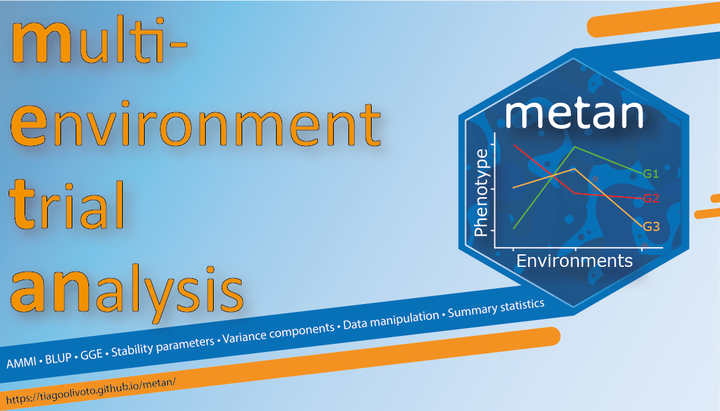 Image by Tiago Olivoto
Image by Tiago Olivoto
Abstract
Multi‐environment trials (MET) are crucial steps in plant breeding programs that aim increasing crop productivity to ensure global food security. The analysis of MET data requires the combination of several approaches including data manipulation, visualization, and modeling. As new methods are proposed, analyzing MET data correctly and completely remains a challenge, often intractable with existing tools. Here we describe the metan R package, a collection of functions that implement a workflow‐based approach to (a) check, manipulate and summarise typical MET data; (b) analyze individual environments using both fixed and mixed‐effect models; (c) compute parametric and non‐parametric stability statistics; (c) implement biometrical models widely used in MET analysis; and (d) plot typical MET data quickly. In this paper, we present a summary of the functions implemented in metan and how they integrate into a workflow to explore and analyze MET data. We guide the user along a gentle learning curve and show how adding only a few commands or options at a time, powerful analyzes can be implemented. metan offers a flexible, intuitive, and richly documented working environment with tools that will facilitate the implementation of a complete analysis of MET data sets.